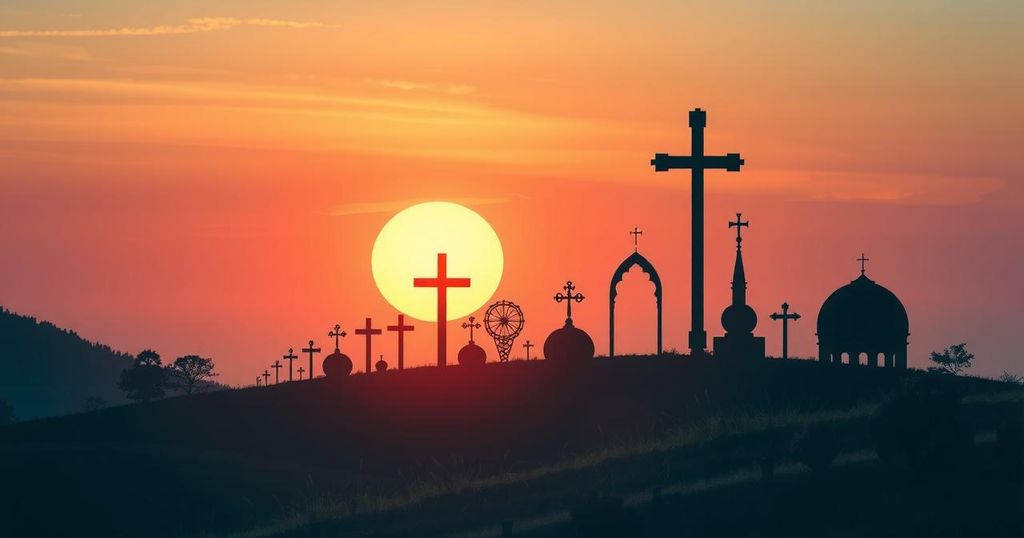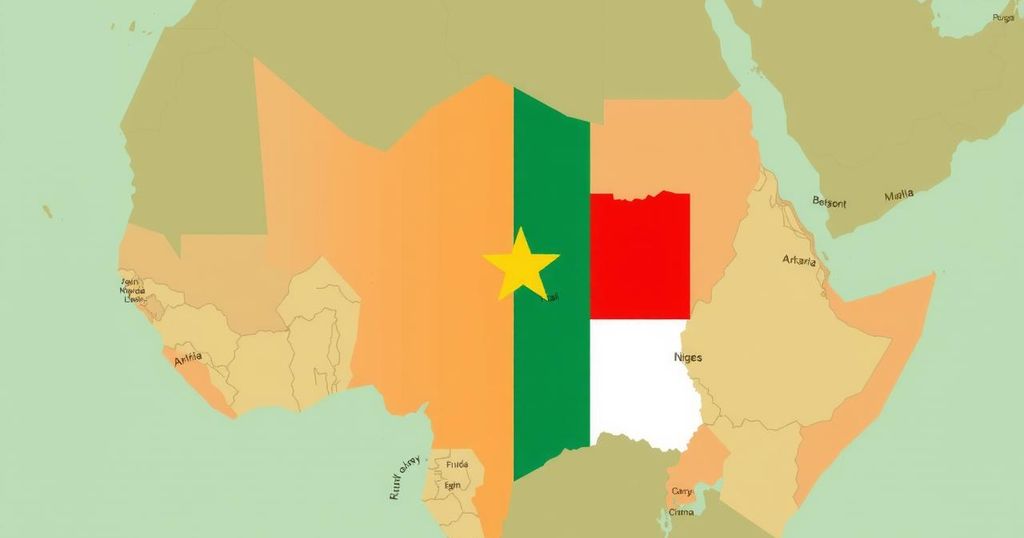On January 30, a press conference in Dhaka revealed escalating violence against religious minorities in Bangladesh, which has gone largely unnoticed by the international press. Reports confirm a worrying rise in extremism leading to attacks on Christians, Hindus, and Buddhists. Civil society protests, such as a demonstration in Rome, urge global action to address these injustices.
On January 30, the Bangladesh Hindu Buddhist Christian Unity Council convened a press conference in Dhaka, aiming to inform international journalists about the escalating violence against religious minorities in Bangladesh. This critical situation, unfortunately, has seen scant coverage by the global media, prompting a significant lack of awareness from the international community regarding these grave injustices.
Violence targeting Christians, Hindus, and other religious minorities in Bangladesh has surged alarmingly. Recent data highlights a disturbing trend of increasing extremism within the country, manifesting in violent attacks on minority communities and their places of worship, alongside systematic discrimination that hinders their access to employment, education, and justice.
Bangladesh is a signatory to key international human rights conventions, including the Universal Declaration of Human Rights and the International Covenant on Civil and Political Rights, which underscores its responsibility to uphold the rights of all citizens, particularly those from minority backgrounds.
Senator Giulio Terzi di Sant’Agata stated, “In this context, the silence of the international community is deeply concerning”. This remark followed the “Demonstration for Peace” held in Rome on February 3, which sought to illuminate the dire circumstances faced by minorities in Bangladesh.
Human rights organizations have indicated that recent sectarian violence is being incited by extremist factions determined to marginalize religious minorities in this predominantly Muslim nation. Many victims recount their struggles with law enforcement, citing insufficient protection, delays in justice, and widespread impunity among offenders.
Since August, targeted violence against religious minorities has escalated in Bangladesh, leading to looting of homes, places of worship, and businesses. The state’s silence on these issues has frequently framed such violence as political rather than acknowledging the underlying sectarian motivations.
International rights bodies such as the United Nations and Amnesty International have called on the Bangladeshi government to implement urgent actions to safeguard religious minorities. Advocacy groups are pressing for stringent enforcement against acts of religious violence, enhanced protection for vulnerable groups, and accountability for hate crimes.
Himanshu Gulati, a member of the Nordic Parliament, emphasized, “We all, both as human beings and leaders in our respective countries, should stand up for justice and protection of fellow humans when they are attacked because of their religion and identity, regardless of where in the world they might live.”
The international community is being urged to employ diplomatic and economic pressures to hold Bangladesh accountable for its commitments to human rights and religious freedoms. Furthermore, civil society organizations advocate for increased awareness and proactive interventions to avert further atrocities.
The alarming increase in violence against religious minorities in Bangladesh has raised considerable concerns regarding human rights. Despite ratifying crucial international human rights agreements, the government faces criticism for insufficient protection and support for vulnerable communities. The systematic discrimination and extremism directed towards minorities call for urgent attention from both national and international entities to ensure justice and security for all citizens.
The troubling rise of violence against religious minorities in Bangladesh necessitates immediate action from the global community. With the urgency of the situation highlighted through demonstrations and press conferences, it is crucial for international bodies to pressure the Bangladeshi government to uphold its commitments to human rights. Advocacy for justice and protection must continue to ensure that no community faces discrimination or violence due to their religion or beliefs.
Original Source: economictimes.indiatimes.com




